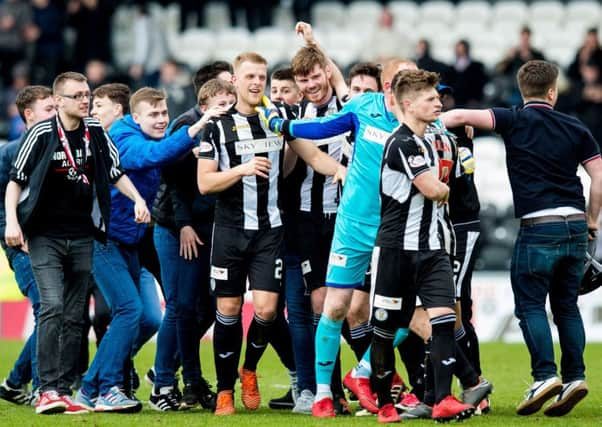St Mirren set to join Hearts and Motherwell as a top-flight '˜pioneer'


For Dave Nicol, St Mirren will now join Hearts and Motherwell as the top-flight “pioneers” of fan trusts being entrusted with a genuine say in how their club operates. With such power comes responsibility that he understands should never be taken lightly.
Nicol is at the heart of this transformation. He was heavily involved in the fan buy-out of 2016 which transferred the shares of Stewart Gilmour and his board of reluctant owners to Gordon Scott. In a move similar to that of The Foundation of Hearts, the St Mirren Independent Supporters Association (SMISA) will buy him out over a decade – al la Ann Budge at Tynecastle – generating the funds through a membership scheme.
Advertisement
Hide AdAdvertisement
Hide AdNicol is that mythical figure for many in football of the fan representative on the board. The man with the engineering background talks such sense about the nuts and bolts of what supporter ownership really means, and the importances of articulating its values, he ought to be cloned and embedded in every club going down this route.
“I think there is a degree of education needed more generally about how fan ownership can work,” he said. “I think ourselves, Hearts and Motherwell have a duty to show that fans can be responsible owners and that we understand the difference between owning and controlling the club. Every football team needs a board of directors that runs the day-to-day affairs, and this is not about members demanding votes over a manager’s future or player recruitment. Yet, at the same time they can make emotional investments as well as financial ones, and so feel much closer to their club.”
There are close on 1,300 members, most paying £12, to SMISA. Nicol says that where they differ from Hearts is that they do not use any of these funds for working capital. Of the £12 subscription, £2 a month goes to a discretionary fund that fans vote to determine how it is spent. Nicol is proud that this money has been used to create a new disabled viewing platform, paid for a sport scientist that the manager’s budget could not stretch to cover, and that his role as a conduit between the supporters and the board could help facilitate a singing section in the ground.
“For so long the new stadium never seemed like home, but it does now and the singing section has been a big part of that,” he said, with recent celebratory home games ramping up the community spirit thanks to bouncy castles, face painters and live music in the stadium environs as pre-match entertainment.
“Results have clearly been instrumental, but we feel that our ownership model has helped drive the club on. The old board did a lot of good things but they wanted out for a long time and had become tired and fed-up. That tiredness filtered through to all aspects of the club and it became stagnant.
“Now there is a freshness to be felt on the pitch, in the stands and throughout the entire supporter network, and across Paisley. And this is underpinned by a new ambition that means that we can be a club that looks upwards in the Premiership.”